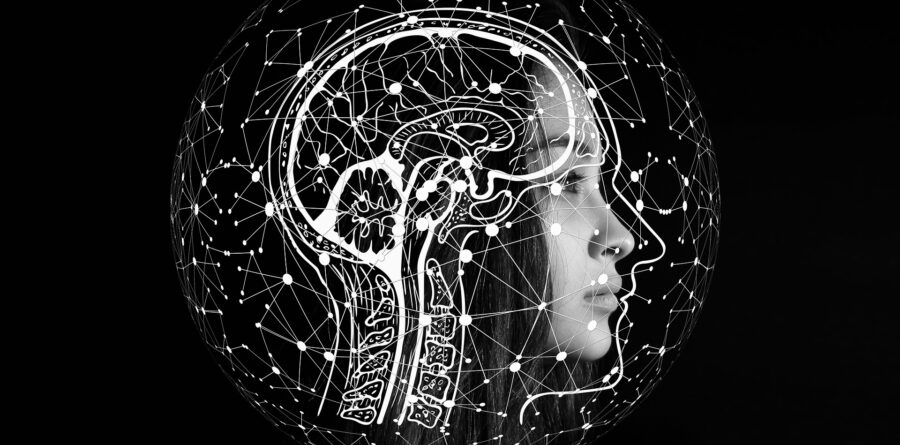19/05/2023
80% of workers don’t believe AI will replace them in the workplace
Contributed by ID Crypt Global

ChatGPT, the world’s first artificial intelligence-based conversational service, has made countless headlines since its November 2022 launch. Everyone is intrigued by the answers the AI gives to various questions. And many think that ChatGPT represents the future.
One area where artificial intelligence can easily make a significant impact is online search. Search giant Bing is adding GPT-4 to its search and is mounting a serious challenge to Google’s online search supremacy. The incumbent has been serving arguably poorer search results than some of its competitors lately. The time for challengers to strike is now, and AI may be the disruptive technology that could allow them to dethrone Google.
Google Has the Resources to Fight Back
Google has recognized the potential of AI in search and other branches of information technology. And it is not about to go down without a sturdy title defense effort. Seeing ChatGPTs success and the interest it garnered, Google turned to Anthropic, a possible rival to ChatGPT. Since December 2022, the search giant invested $400 million in Anthropic’s AI conversation tool. The result of Google’s rush to catch up with the latest developments on the AI front is Google Bard, announced in February 2023.
Microsoft has a considerable head start over Google in the AI chatbot department. It began investing in 2019, and in 2021, it gave the startup another round of funds. Will its efforts start to pay dividends this year? Will Google use its unparalleled experience and expertise in online search to fend off the challenge of a ChatGPT-powered Bing? 2023 may deliver the answer.
ChatGPT, Generative AI and Search AI
According to gadgetadvisor.com ”ChatGPT is an artificial intelligence-powered chatbot” that engages in meaningful conversation with users. At its core is a technology that allows it to use scientific discoveries, large datasets, and improved algorithms to generate intelligent answers to the questions users ask.
Generative AI can recombine existing data into meaningful new data like text, music, pictures, etc. It also lends itself well to handling internet searches. There has been a shift over the last decade toward question-based internet search, as that format feels more natural to internet users. AI can help search engines rank websites, videos, and other content, as well as generate content to keep searchers engaged.
ChatGPT and internet search are, indeed, a match made in heaven.
What about Google Bard?
Google Bard is the search giant’s answer to ChatGPT. It uses Google’s LaMDA conversation technology to provide relevant answers to questions and condense intricate concepts into easy-to-understand snippets of information. Google will integrate Bard into its Chrome browser and make it available to the masses.
Unlike ChatGPT, which uses a massive data block as its source of information, Google’s Bard uses the internet for the same purpose. Trying to one-up ChatGPT is a necessity at this point for Google, and Bard’s development betrays such a direction.
ChatGPT doesn’t use the internet to generate responses. Bard, on the other hand, relies on the internet, treating it as the most comprehensive collection of knowledge and information humanity has amassed. It has access to real-time information.
Other Differences between Bard and ChatGPT
Google is well aware that to retain its leading position in internet search in the era of AI-powered search, it must deliver a superior product in Bard.
In addition to using a real-time source of information, Bard uses different learning methods. Human trainers teach the software under supervision to ensure that it provides human-like responses as accurately as possible.
The current iteration of ChatGPT, on the other hand, uses unsupervised learning from large volumes of data. There is no human component in ChatGPT’s learning procedures. As a result, the bot may provide less accurate answers that do not sound as human-like as Bard’s.
On the other hand, ChatGPT is open-source. The software allows developers to bend and shape it for any purpose they deem useful.
Bard is not open-source, but it has an API developers can access.
Although similar in many ways, Bard and ChatGPT represent the opposite ends of the generative AI spectrum. One uses an unsupervised learning model, while the other is supervised. The competition between the two will lead to accelerated AI growth.
AI Will have a Profound Impact on Society and Life
AI will take over countless jobs and lead to unprecedented innovation. Handing off technological innovation to machine learning can lead to an exponential explosion in innovation. And as AI-born innovations go online, further improving the abilities of the system, the innovative ability of AI will increase further.
The moment technology reaches the ability to build upon itself, the singularity will be upon us. The singularity is the moment when the pace of technological innovation outgrows human comprehension, rendering humans redundant and unnecessary for further technological progress.
Once AI becomes self-aware, we are treading an unpredictable grey area that may no longer favor humanity.
The AI Search War is Heating Up
At this point, it is impossible to tell whether Microsoft or Google will emerge as the winner of the AI search war. Both solutions enjoy some advantages over the other, and they both seem to be capable to improve search results radically.
Whether the future is bright or dark, one thing is certain: AI will play a significant role in it. And it will hopefully improve the quality of our search results for now.
All articles on this news site are submitted by registered contributors of EssexWire. Find out how to subscribe and submit your stories here »